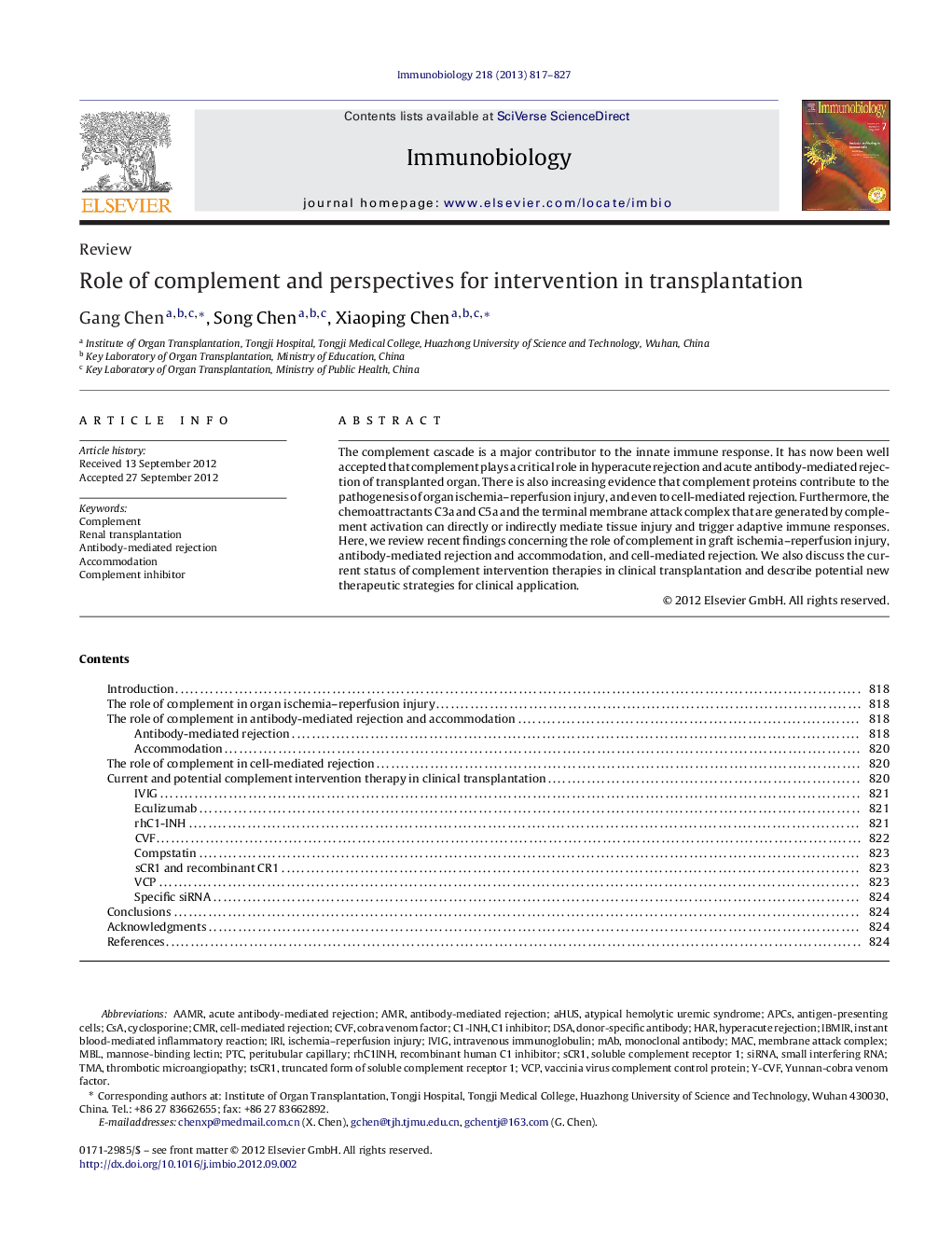| Article ID | Journal | Published Year | Pages | File Type |
|---|---|---|---|---|
| 2182982 | Immunobiology | 2013 | 11 Pages |
The complement cascade is a major contributor to the innate immune response. It has now been well accepted that complement plays a critical role in hyperacute rejection and acute antibody-mediated rejection of transplanted organ. There is also increasing evidence that complement proteins contribute to the pathogenesis of organ ischemia–reperfusion injury, and even to cell-mediated rejection. Furthermore, the chemoattractants C3a and C5a and the terminal membrane attack complex that are generated by complement activation can directly or indirectly mediate tissue injury and trigger adaptive immune responses. Here, we review recent findings concerning the role of complement in graft ischemia–reperfusion injury, antibody-mediated rejection and accommodation, and cell-mediated rejection. We also discuss the current status of complement intervention therapies in clinical transplantation and describe potential new therapeutic strategies for clinical application.
